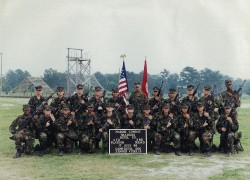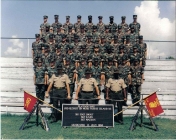Specialty Summary: Exploits intelligence information to develop global communications structures for targeting, exploitation, and situational awareness. Analyzes intelligence information through research and assessment to determine adversarial actions and intentions. Drafts and disseminates long-term and time-sensitive intelligence reports to consumers worldwide. Related DoD Occupational Subgroup: 123200.
Duties and Responsibilities: Performs detailed analysis to reveal target network communications nodes, structures, operating procedures, and mediums for additional exploitation. Recovers, correlates, and fuses technical, geographical, and operational intelligence information.
Recognizes and exploits information. Authors time-sensitive intelligence reports in accordance with established guidelines to support warfighters and national decision makers. Produces, analyzes, studies, researches, fuses, and correlates intelligence for strategic, operational, and tactical customers. Provides target geopolitical and operational intelligence to national agencies and military command authorities. Identifies and disseminates real-time threat warning information.
Develops and employs techniques to collect, identify, and exploit target networks and operating characteristics. Reconstructs target communication profiles through in-depth analysis of communication characteristics and target tactics, techniques and procedures. Creates and maintains technical and operational databases using diverse computer hardware and software applications. Operates mission-essential communications mediums.
Uses all source intelligence information to produce and present topical high-interest technical and operational intelligence briefings to all levels of command. Prepares target communications assessments, adversary order of battle studies, situation reports, and other intelligence reports as required.
Provides analysis of Information Operations activities and support to Air and Space Operations Centers and supported commanders. Provides detailed support to contingency and deliberate planning processes.
Specialty Qualifications:
Knowledge. Must have knowledge of: theory of global communications procedures; analytical techniques; organization of the national intelligence structure; Information Operations; organization of designated military forces; geography; reporting principles and procedures; effective writing principles; and directives for handling, disseminating, and safeguarding classified defense information.
Education. Completion of high school with courses in mathematics, English composition, computer applications, and digital communications is desirable for entry into this specialty.
Training. For award of AFSC 1N431, completion of a basic network intelligence analysis course is mandatory.
Experience. The following experience is mandatory for award of the AFSC indicated:
1N451. Qualification in and possession of AFSC 1N431.
1N471. Qualification in and possession of AFSC 1N451.
1N491. Qualification in and possession of AFSC 1N471.
Other. The following are mandatory as indicated: Specialty requires routine access to Top Secret material or similar environment. For award and retention of AFSCs 1N4X1, completion of a current Single Scope Background Investigation (SSBI) according to AFI 31-501, Personnel Security Program Management. NOTE: Award of the 3-skill level without a completed SSBI is authorized provided an interim Top Secret clearance has been granted according to AFI 31-501.




